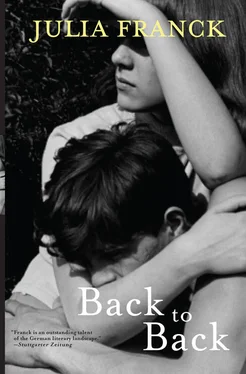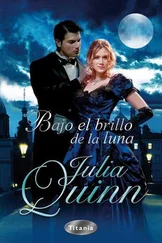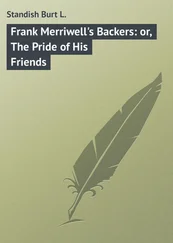Wiegand had brought some cigarillos. They came from a tobacco dealer in Leipzig who sold only under the counter, and who had been obliged to close his shop down some time ago because the sales of tobacco had been centralised. The smoke of them rose from Wiegand’s nose and mouth and went back into his body with the next breath he drew. He held his breath for a minute during which he couldn’t say any more, thus allowing Käthe to take over from him in mid-sentence.
The workers in Leuna need something beautiful, mankind needs hope, needs an incentive. Bread and art.
The three of them nodded in a single synchronised movement, and they bowed their heads as one.
If we think that art is only for an educated bourgeois elite we are doing ourselves and the workers down, that would be a rejection of the working class, of a socialist society. We want to create art that is for everyone. Giotto painted for everyone, so did Dürer. Picasso didn’t cut himself off from other people, Guernica doesn’t stop short of the suffering of everyone. Suffering is universal, it affects us all. By now Käthe was in full swing, entirely enveloped in her magnificent froth. Thomas wondered whether, clad in that glittering garment, she could even see the others.
Why go on about suffering? Rüdiger looked at her in surprise.
We want peace, don’t we? Käthe looked sharply back at him.
Yes.
Everyone wants peace. Käthe spoke firmly; she had no doubt about it. Her visitors were looking at her expectantly. The Africans have liberated themselves. Germany has been liberated. Now we have to found a society in which fascism will no longer be an option.
Yes.
Wiegand was nodding now, too.
Käthe carried on. Her manner made Thomas think of the word declamation. Of words making sounds like delectation, reclamation. Declamation. He was sorry he couldn’t learn Latin. Subjects from the old humanist educational timetable, in which classical languages were taught, were thought undesirable these days; young people today were not to remain trapped in the elitist mindset of their past origins, they were to keep their feet on the ground, Russian was the language of choice. Not that anyone had any choice. Including Thomas. The three sculptors talked, smoked, argued and never gave a thought to the naked boy who stood there useless for some time, arm raised, then lowered, and finally, after a good half-hour, he moved from his pose in silence — he didn’t want to interrupt the conversation — picked up his vest and shirt and was about to put them on and go away, thinking he wouldn’t be needed any more.
As soon as Käthe noticed Thomas preparing to pull his vest on she took a couple of steps and snatched the shirt out of his hand. If you’re cold move about a bit, Käthe snapped at him, we’ll be going on again in a minute. She turned to her visitors and said: Years ago that governmental oaf over there began arming his soldiers again. In the administration and the courts, in government posts, everywhere you look you see the same old warriors, men who made their careers and their money and their reputation among the Nazis. Getting all the benefits. And now they reap a fitting harvest, their time has come.
The struggle of the working class against their rulers can succeed only if everyone joins in, agreed Rüdiger with a nod. His voice sounded muted; he recited the maxim as if reading it off a board.
Blood on their hands!
Blood?
I mean that lot over there in their fine posts, said Käthe, shaking her head, are you blind? Thomas was watching Käthe, marvelling at her manner, which seemed to him brave and sometimes naive, almost stupid. Käthe implicitly believed that all those in the creative arts who said they were socialists must be good people.
As Rüdiger and Wiegand did not know for a moment what they ought to say about the blood on the hands of people over there in the other Germany, Käthe cleared her throat and raised her voice again: No French Revolution without Joan of Arc. If we’re to get anything done it can only be through commitment, and everyone can help there, you and you, and so can I. Käthe was beaming, her cheeks were flushed now with heat and enthusiasm.
Thomas turned away. He thought it was embarrassing to hear three grown adults talking in such childish clichés.
Another half an hour passed while Thomas walked up and down the studio, naked and useless, until in the middle of her animated discourse she told him to come over to them. Here, she said to the small and rather flat-faced redhead, this is what I mean. Käthe tapped Thomas’s shoulders and the back of his neck as if he were made of stone. A grown man’s shoulders aren’t as narrow as that, you can guess at the imposing stature to come — stand up straight, Thomas, do! — but it’s present only as potential in a young man. And look, added Käthe, pointing to his loins like a teacher pointing to the blackboard, the genitals are hardly there yet. So saying, Käthe tapped Thomas on the hip and turned him like a jointed puppet so that he could be seen better from behind. Michelangelo exaggerated them as well, in his David they’re fully formed, stylised, or no one would realise that he’d grow to be a man. A man who stands tall and fights!
Thomas lowered his eyes. He did not stand tall. He was not a fighter. It depressed him to hear Käthe, in the firm belief that she could dissociate herself from every manifestation of National Socialism, taking him of all people, his body, as the example of a man standing tall in the class struggle. He wasn’t. He felt a hand moving down his backbone, presumably Käthe’s, but it could belong to someone else.
One of the men said: He’s not man enough for that yet. His shrill, cheerful laughter rang sharply in Thomas’s ears. But the others interrupted, drowning it out.
So let’s suggest a plaque for the chemicals plant, we’ll show the workers at work, the miner, the welder, the nurse, the factory hand.
Thomas kept his back turned to the others. He longed for calm, and thought of Käthe’s brother Paul, who like a great many other people had got out of Germany at the right moment. If Thomas had been around then he was sure he would have done the same. He was not a fighter, and the idea of triumph left him cold. Thomas wondered what his life would have been like if he had been born in America as the son of Käthe’s brother. Perhaps Käthe had simply missed the right moment back then. That was not how she described it; she had never wanted to go to America, she said; she wrinkled her nose very slightly at the thought of her brother, who had seized the first opportunity with both hands and emigrated in 1936. There was no art in America, said Käthe. No one was about to contradict her, neither Rüdiger nor Wiegand.
At that moment the door from the yard into the studio opened, and two long-haired, giggling women appeared in the doorway, each with a bottle of wine under her arm and another, already uncorked, in her hand. The door stayed open for a while; soft snowflakes were drifting down in the blue twilight outside. As if at a word of command, both women put their bottles to their mouths and took a large gulp, and then bent forward spluttering and laughing.
Wipe the snow off your shoes, Käthe told them, pointing to the scraper just inside the door. The Leipzig sculptors’ girlfriends giggled at their wet shoes, but obediently wiped the soles over the scraper several times. The hydrogen blonde flung herself on the little red-headed sculptor’s shoulder, belching; perhaps she was feeling sick. But then she raised her swan-like neck, and she towered over not only the little redhead but everyone else in the studio.
Oh, how sweet, cried the swan-necked girl as her glance fell on the naked Thomas and his genitals. She stared at his prick as if she had never seen a naked man before, or at least not such a young one. Thomas blushed.
Читать дальше












